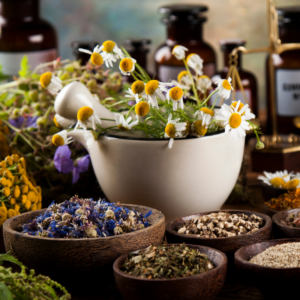Herbal Career
Embarking on an herbal career requires a deep understanding of the art and science of herbal medicine.
To become a skilled herbalist, follow these steps: research from good sources, get an education, intern or volunteer, experiment, expand knowledge and network, get certified, attend courses, know legal and ethical rules, and start your own practice. Respect diverse beliefs and work hard to make a positive impact.
Research and Learn for Your Herbal Career
To get started, it’s recommended that you research and learn about herbal medicine. Get acquainted with different herbs, their properties, their traditional uses, and possible interactions or contraindications. It’s best to seek out reliable books, online resources, and courses that can give you a strong foundation of knowledge. However, I advise against relying on Facebook groups for your education. These groups can often be inaccurate and contain harmful information.
Education for Your Herbal Career
Regarding herbal medicine, formal education is worth considering. You should search for trustworthy schools or institutions that offer programs or courses in herbalism. These programs can vary in length, from short-term courses to comprehensive degree programs. Finding a program that aligns with your goals and interests is essential. Learn about the different types of herbalism that align with your beliefs. Heart of Herbs Herbal School is a Western Herbalism school. Western herbalism is a type of healing that stems from the herbal traditions of Europe and the Americas. It studies and utilizes European and Indigenous American herbs to prevent and treat illnesses. This approach is grounded in the clinical experience and traditional knowledge of doctors and herbalists, who have passed down their wisdom through oral tradition and written records spanning millennia.
Get Experience
It is imperative that you actively search for opportunities to gain practical experience in the field of herbal medicine. We highly recommend seeking apprenticeships or internships with established herbalists or herbal medicine clinics. Without hands-on experience, you cannot develop your skills or thoroughly comprehend herbal remedies. You can also look into volunteering services at local community health organizations.
Get Hands-On Experience: Begin exploring the realm of herbs and their medicinal applications by conducting personal experiments. Set up a personal home apothecary and acquaint yourself with preparing and administering different herbal remedies. Try your hand at making tinctures, infusions, decoctions, and herbal salves. Accurately document your results for future reference. You should also learn botany, plant identification, sanitation, proper formulation, etc.. all of these you can find with us or other reputable schools.
Network
To expand your knowledge and network, consider joining professional or local herbalist organizations and attending conferences, workshops, and seminars. Engaging with the herbalist community can open doors to mentorship and collaboration opportunities and keep you updated on the latest developments in herbal medicine.
Herbal Career Certification:
Have you thought about becoming a certified herbalist? While not mandatory, it can boost your credibility and show your dedication to the industry. Certification lets people know you have finished a program with academic and hands-on educational requirements. Various organizations, like the American Herbalists Guild (AHG) or the National Institute of Medical Herbalists (NIMH) in the UK, provide links to herbalist certification programs.
Stay Current
To stay current and proficient in herbal medicine, it is essential to engage in lifelong learning. Keep abreast of the latest research, trends, and advancements by attending continuing education courses, workshops, and conferences. These opportunities will help you expand your knowledge and skills.
The Laws for Herbal Careers
Legal and Ethical Considerations: Familiarize yourself with the legal and ethical considerations surrounding herbal medicine in your jurisdiction. Understand any regulations or restrictions related to the sale, distribution, or practice of herbal remedies. At Heart of Herbs Herbal School, we teach students how to be responsible practitioners and business owners.
Elevate Your Herbal Career
Once you have gained enough knowledge and expertise, it is time to consider establishing your own herbalist practice seriously. This will involve offering consultations, creating personalized herbal blends, organizing informative workshops, and promoting herbal products.
It is crucial to bear in mind that the discipline of herbal medicine is vast, and various societies have their unique customary practices and beliefs. It is vital to approach herbalism with reverence, accountability, and rationality grounded in evidence.

Come Join Us!
At Heart of Herbs Herbal School, we support you on your herbal journey. We update resources, respond to emails, and schedule phone calls with students when needed. We want you to feel supported while you pursue your herbal studies from the comfort of your own home.
We have a supportive and diverse student body with students from all over the world. We encourage you to connect with our student group and learn and grow with each other.
We believe in support, mentorship and connection.
This online course is self-paced and you can start as soon as you sign up!
Disclaimer
Disclaimer Blog
The information presented on the Heart of Herbs Herbal School/Demetria Clark websites is for educational purposes only. Heart of Herbs Herbal School/Demetria Clark Education LLC makes neither medical claims nor intends to diagnose or treat medical conditions. Links to external sites are for informational purposes only. Heart of Herbs Herbal School/Demetria Clark neither endorses them nor is in any way responsible for their content. Readers must do their own research regarding the safety and usage of any herbs, recipes, or supplements.



